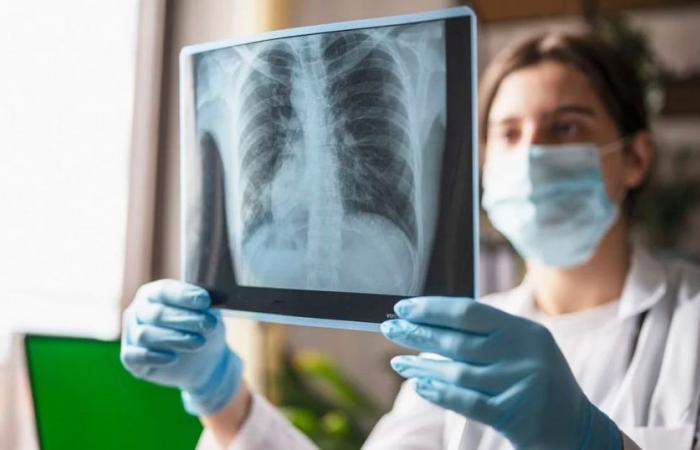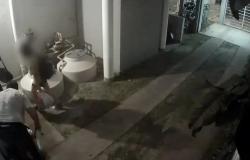The Ministry of Health reported that there is a increase in diagnoses referring to respiratory infections in Argentina. “The studies reported by the respiratory virus network show a increase in influenza detections in recent weeks; with an increase from 384 cases in week 20 (mid-May) to 1,248 in week 22 (end of May). Furthermore, it verifies a slight increase in detections of respiratory syncytial virus (RSV), with more than 300 cases recorded in the last three weeks. In week 22 of 2024, in addition, it is detected circulation of SARS-CoV-2, parainfluenza, adenovirus and metapneumovirus”detailed in the Bulletin Epidemiological.
“Influenza cases have shown an upward trend since week 16 (mid-April), exceeding 200 weekly cases in the last 4 weeks. Furthermore, starting from week 16, an increase in RSV detections in boarding schools has been recorded. SARS-CoV-2 cases remain at low levels“, they added.
And they reported that in the first 23 weeks of 2024 “the death of 41 people diagnosed with influenza was reported.” “In the Ambulatory Monitoring Units there has been an increase in Influenza cases in the last 8 weeks, with 62 positive cases among the 120 samples studied in the last week. In addition, in week 23 (early June), 6 were registered. detections of SARS-CoV-2 among the 667 samples analyzed by molecular technique. No positive cases for RSV were detected in the last week,” they added.
In the report, they postulated that, between “epidemiological weeks 1 and 22 of 2024, 372,038 cases of ILI (Influenza-Like Illness)47,471 cases of Pneumonia and 37,810 cases of Bronchiolitis in children under two years of age, representing a decrease in notifications of -11.51% for ILI, -32.05% for pneumonia and -56.58% for bronchiolitis, compared to the cases reported in the same period of 2023″.
“If the number of ILI notifications is compared in the period 2015-2024, it is observed that the highest number of cases is registered for the year 2022 (with a total of 528,389 cases), followed by the year 2016. The number of notifications of ETI corresponding to weeks 1 to 22 of 2024 is lower compared to the years 2016 to 2017 and 2022 to 2023, and higher compared to the years 2015 and 2018 to 2021,” they noted.
Respiratory syncytial virus (VSR), Recognized to be the causative agent of acute respiratory infections in infants and young children, it is the main cause of infections of the lower respiratory tract, such as bronchiolitis and viral pneumonia. In Argentina there are various therapies to face it throughout life.
It should be remembered that the transmission of the virus occurs through respiratory secretions (droplets) that are dispersed when infected people cough or sneeze, as well as through direct contact. Every year, during the fall and winter months, an increase in the circulation of RSV is observed, which generates an increase in outpatient pediatric consultations and hospitalizations, especially in boys and girls under 1 year of age. But also in older adults.
Recently, the head of the Infectious Diseases section of the CEMIC and member of the Vacunar Foundation, Pablo Bonvehí (MN 62,648), stressed Infobae the importance of prevention through measures such as “Use and dispose of disposable tissues, wash your hands frequently and ventilate the rooms well.” Meanwhile, in dialogue with Infobaepulmonologist Diego Litewka (MN 74.394), head of Pulmonology at the Juan A. Fernández Hospital, previously emphasized that “infected people usually spread the virus between three and eight days after the onset of symptoms, and as it is an underdiagnosed disease, “There is no precise epidemiological data, especially in adults.”
Like most respiratory viruses, RSV can cause damage at all stages of life. That is why it is important to have vaccines to prevent the severe pictures. Infobae detailed the incorporation to National Vaccination Calendar (CNV) of the vaccine against VSR from the Pfizer laboratory for the pregnant women, which is applied free of charge and mandatory between weeks 32 and 36 of pregnancy and which generates, through the antibodies produced by the mother, protection of about 6 months in newborns.
As this media reported, the vaccine for pregnant women developed by the Pfizer laboratory, was approved by the ANMAT in September 2023 and was included in the CNV by the Ministry of Health in December. In March of this yearHE vaccination campaign started to protect pregnant women and their unborn babies in the face of autumn-winter.
Now, in turn, another vulnerable group in Argentina has vaccines to protect itself from the virus. GSK and Pfizer They offer two in the country therapeutic tools to counterattack the scourge that causes this virus in older adults. Furthermore, at the end of May 2024, the Food and Drug Administration (FDA) of the United States authorized the RSV vaccine from the Moderna laboratory for adults aged 60 or over. Yes ok It is not authorized in Argentina, As always, the approvals of the North American regulatory body set a precedent for other organizations in the rest of the world. Moderna also currently has three vaccines in Phase III research, intended to protect the population against tripledemic: COVID-19, RSV and influenza.
Regarding other respiratory viruses, this week Moderna reported data from another trial, that corresponding to the combined vaccine for COVID and influenza, called mRNA-1083, which according to what it learned Infobaeexpected to be available in 2025. The most recent therapeutic tools available in Argentina are intended to protect those over 60 years of age. Two large laboratories launched vaccines for this age group in recent months. The inoculant produced by GSK showed an efficacy of 82.6% to prevent lower respiratory infections caused by two types of circulating VSR (VSR A and VSR B) in this population and 94.6% in adults with chronic diseases.
In Argentina, the GSK inoculant is approved for people over 60 years of age, but it is worth noting that this week the Food and Drug Administration (FDA) authorized the application of the vaccine against VSR developed by GSK for administration to adults at risk of between 50 and 59 years old. Meanwhile, the RSV vaccine Pfizer, which is part of the National Immunization Calendar of Argentina, is free for pregnant women between weeks 32 and 36 of pregnancy. And, in addition, it is available in vaccination centers for its application in adults from 60 years old, according to medical indication.






